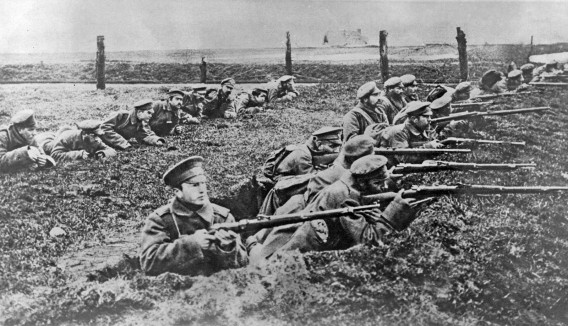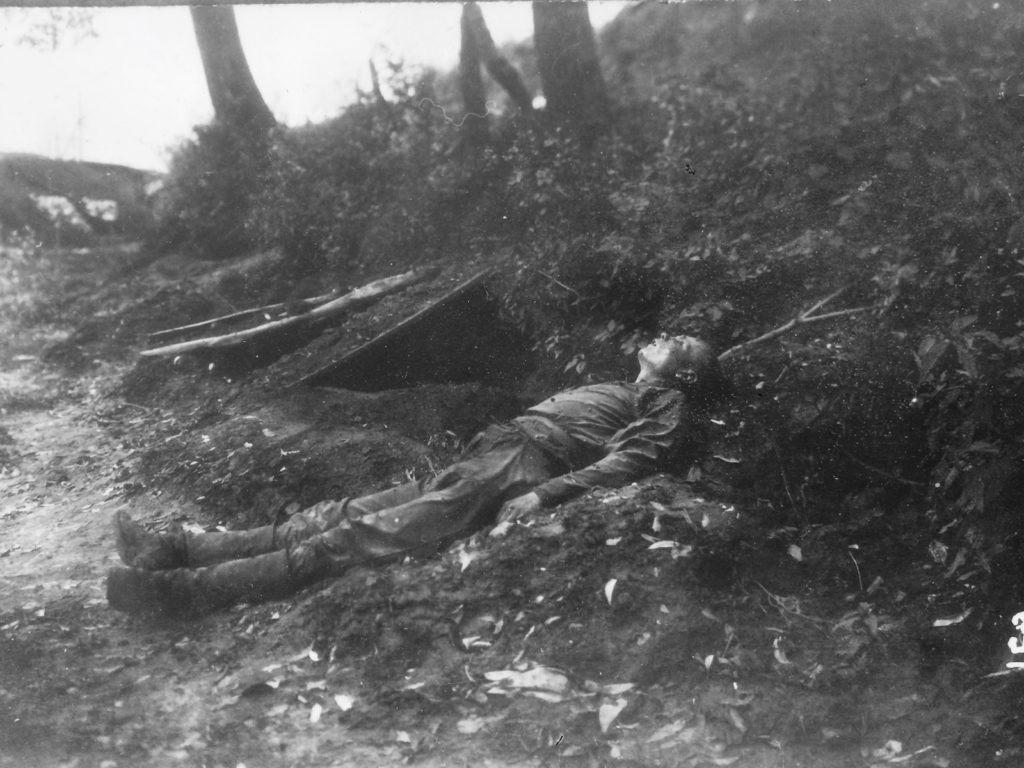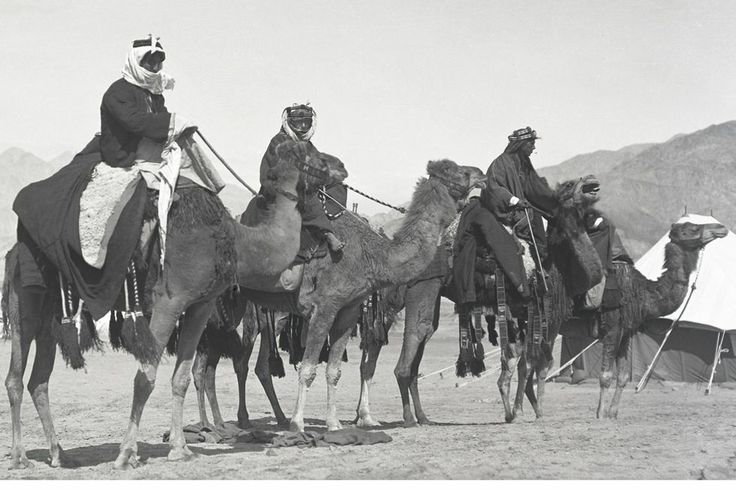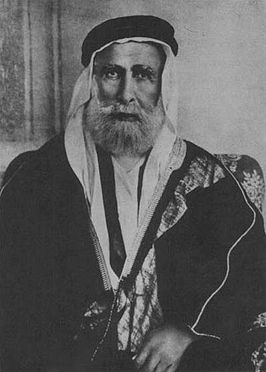Hundreds of Thousands of Austrians Taken Prisoner
Swift Hashemite Gains in the Arab Revolt.
Special to The Great War Project.
(16 June) The Russians continue to make significant gains on the Eastern Front in what is being called the Brusilov offensive. It’s the most progress the Russians make since the beginning of the war in 1914.
According to historian Martin Gilbert, on June 12th a hundred years ago, General Alexei Brusilov announces that “in the advances that his men had made since the start of his offensive eight days earlier, they had captured 190,000 Austrian soldiers,” nearly 3000 Austrian officers, 216 heavy guns, 645 machine guns, and almost 200 howitzers.

Russian troops secure defensive positions during the Brusilov offensive, spring 1916.
Reports Gilbert, “One third of the Austrian forces facing him had been taken captive.”
In another three days, the Russians take the city of Czernowitz, now in Ukraine, then the farthest eastern city in the Austro-Hungarian Empire.

Dead soldiers during the Brusilov offensive.
In the Middle East, additional significant gains for the Allies in the Middle East. A few days earlier, Sherif Hussein, the leader of the Hashemite clan in Mecca, declares the start of the Arab Revolt, an operation planned by the British to take the Arabian Peninsula away from the Ottoman Turks.
Although the British and the Hashemites have joined forces to launch the Arab Revolt, their alliance “offered far less,” writes historian Eugene Rogan, “than both sides originally believed they were securing on first entering into negotiations.”
Britain is greatly weakened by the enormous bloodletting on the Western Front. It is not now capable of mustering the firepower necessary to support a revolt in Arabia.
As for the Hashemites, Sherif Hussein’s forces “were in no position to bargain.” The most they can do, explains historian Rogan, “was challenge Ottoman rule in the Hejaz,” [in western Arabia.] “Success depended on their ability to mobilize the notoriously undisciplined Bedouin to their cause.”

Troops of the Arab Revolt, date uncertain
“Arguably,” writes Rogan, “the alliance survived because the Hashemites and the British needed each other more in the summer of 1916 than ever.” Sherif Hussein faces possible arrest or even murder at the hands of the Ottoman Turks.
“The British needed the Sherif’s religious authority to undermine the Ottoman jihad, which [British] officials feared recent Turkish victories had strengthened.”
Rogan writes, “Whatever the results of a Hashemite-led revolt, the movement would at least weaken the Ottoman war effort and force the Turks to divert troops and resources to restore order in the Hejaz and possibly other Arab provinces.”
Thus writes Rogan, “For their own reasons, both the British and the Hashemites were in a hurry to launch the revolt.”

Sherif Hussein of Mecca, leader of the Arab Revolt.
Just a few days earlier, Hussein declares the independence of the Hejaz, in western Arabia. But at first it doesn’t go well. The Arabs quickly lose their first encounter with the Turks at Medina.
But the Arabs, led by British officers, persevere. Reports historian Martin Gilbert, “in the next encounter a week later, the Turks were outnumbered and outgunned.”
In just three days, the Arabs control much of Mecca.
The Turks withdraw most of their manpower. But within artillery range, they shell Mecca. “A number of shells,” Rogan reports, “hit the Great Mosque, setting fire to the canopy over the Kaaba, Islam’s holiest shrine.”
“Mecca,” reports Gilbert, “fell to the Arabs on June 13 and Jeddah three days later.”
